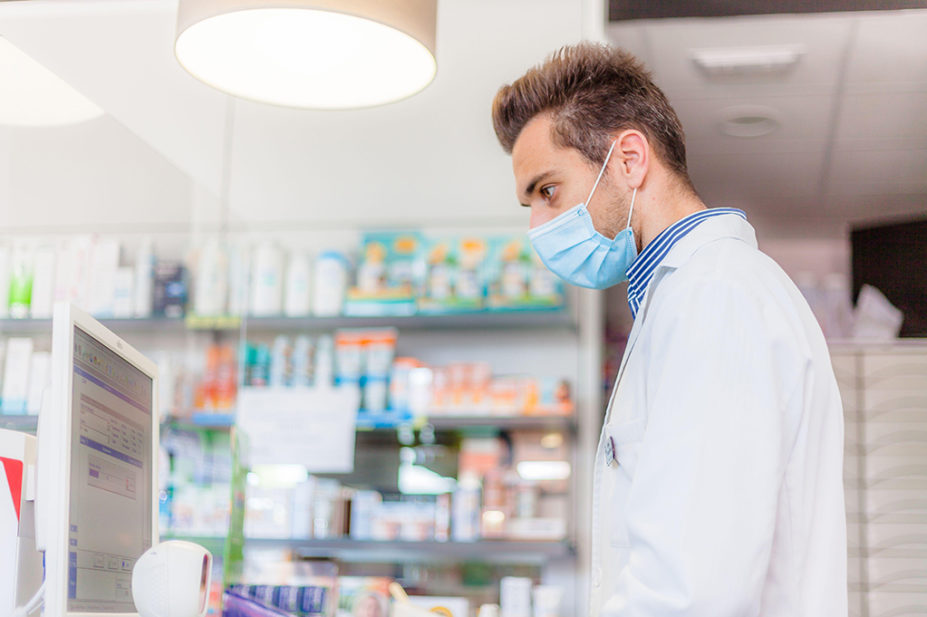
M.Horta / Alamy Stock Photo
Community pharmacies in nine areas of England are to receive referrals from urgent and emergency care settings through a ‘Community pharmacist consultation service’ (CPCS) pilot.
Participating pharmacies will be paid £14 per referral from settings including urgent treatment centres (UTCs) and accident and emergency departments (EDs), the NHS Business Services Authority (NHSBSA) has said.
According to a service level agreement, published in November 2021 by NHS England and NHS Improvement, the pilot sites are due to start between 1 November and 1 December 2021 and will run until 30 June 2022. However, according to the NHSBSA website, the pilots “may be extended” until 30 September 2022.
This referral route was first announced in July 2019 as part of the five-year ‘Community pharmacy contractual framework‘ and its launch follows comments from NHS England in October 2021 that the pilot would begin in winter 2021.
To participate, pharmacies must have a completion rate of at least 60% for CPCS referrals over the past six months. A referral is considered completed when one of seven criteria have been met, including once the pharmacist has consulted with the patient and given advice.
Participating pharmacies must also be located within one of the nine clinical commissioning group (CCG) pilot areas to participate in the pilot, which include Bristol, North Somerset and South Gloucestershire; East and West Sussex; Kent and Medway; Coventry and Warwickshire; Blackpool, Fylde and Wyre; Bury; Wakefield; Northumberland, North Tyneside and Gateshead; and Tameside and Glossop.
A statement on Blackpool, Fylde and Wyre CCGs’ website, published on 23 November 2021, said its pilot was “due to launch on 1 December 2021” with 25 community pharmacies in the region taking part.
The NHSBSA website said the pilot “is expected to relieve pressure on urgent and emergency care by referring patients to a consultation with a community pharmacist where they would usually have attended a GP appointment; GP out of hours appointment; [or] a UTC or ED department, due to running out of regular medicines or requiring support with low acuity or minor illness”.
It added that the service will also help tackle “existing health inequalities by providing urgent access to patients who are not registered with a GP” and ease pressure on urgent care services this winter.
Alastair Buxton, director of NHS Services at the Pharmaceutical Services Negotiating Committee, said: “The start of this pilot is a positive development and we hope it will show how more people can be safely referred to the CPCS, helping urgent care providers and patients alike.
“Patients struggling to access care will really benefit from such an expansion of the service, but the ability for patients to self-refer to the service is also a necessary development if its potential benefits are to be fully maximised.”
Ravi Sharma, director of the Royal Pharmaceutical Society (RPS) in England, said the pilot was “great news on a number of fronts”.
“First and foremost, it will help increase access to care and support for the public, including those patients who are not registered with a GP. Extending the service will also make greater use of the clinical expertise of community pharmacists and will undoubtably help reduce pressures on the NHS.
“To help ensure the success of the pilot and to make referrals as easy as possible, local implementation support and project management will be required,” he said, adding that pharmacists “wishing to take part in the pilot must have undertaken the CPCS training via RPS or the Royal College of GPs, or registered to undertake the training in the near future”.
On top of the £14 per referral, pharmacy contractors will be able to claim a one-off sum of £665 towards administration costs associated with participating in the pilot evaluation and receiving training, with an additional payment of £45 available for contractors who take part in in-depth interviews as part of the evaluation.
Referrals are made through NHSmail or an Interoperability Toolkit-standard message — a messaging system between healthcare organisations — direct to the NHS CPCS IT system. The plan is for the referral to be actioned in a similar way to referrals from general practice and NHS 111.
The NHSBSA website says pharmacists are able to conduct remote live video consultations with patients as part of the service, providing the contractor ensures staff and patients can communicate securely and confidentially by live video and audio link.
Read more: Collaboration not competition: the NHS masterplan to keep patients out of hospital
- This article was updated on 24 November 2021 to include comments from Alastair Buxton, director of NHS services at the Pharmaceutical Services Negotiating Committee, and Ravi Sharma, director of the Royal Pharmaceutical Society in England.


